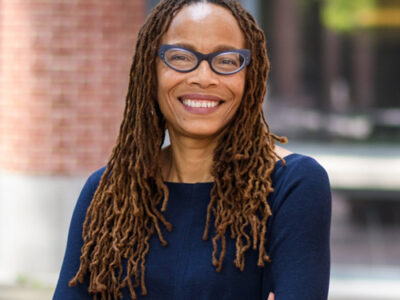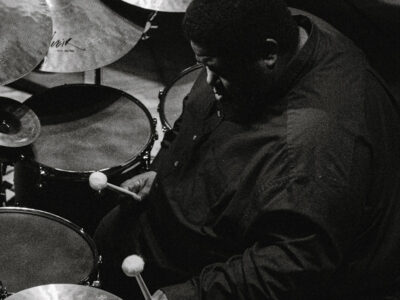
For Michael S. Moore and Heidi Hurd, co-directors of Penn’s Institute of Law and Philosophy, the law can be described as “philosophy with a point.” It forces its practitioners to “reach judgments that have consequences in the real world,” as Hurd puts it. “You have to live with your philosophical conclusions—and most philosophers don’t have to do that.”
Both Moore and Hurd—who happen to be married to each other—are professors of both law and philosophy (Moore’s Law School position is the Leon Meltzer Professor of Law). And in Moore’s view, the marriage of law and philosophy at Penn makes it “about the best place in the world for legal philosophy right now.” The ILP was advanced by outgoing Law School Dean Colin S. Diver, who is responsible for assembling most of the brain power in legal philosophy over his 10-year term as dean.
Although Moore argues that there are “right answers to questions of morality”—or an “objectively definable code of obligations that lies beyond mere internal speculation”—he and Hurd often find themselves in hot water with the legal-philosophy community for championing what Hurd refers to as “minority views in the academy.”
Moore, for example, embraces a “retributivist” definition of the function of punishment: “We ought to punish offenders because and only because they deserve to be punished.” While the academic pendulum has swung somewhat in his direction over the last 20 years, he says, “the standard educated view today is the mixed theory of punishment—we punish because we want to stop crime, but we punish only those who morally deserve it.”
Moore has also justified the use of torture under extreme circumstances in “Torture and the Balance of Evils” (Israel Law Review, Vol. 23, 1989)—a stand which, he says, has endeared him to the Israeli security apparatus. “I like that one because it’s some of the most abstract philosophizing about ethics there is. And yet it’s a very practical question of real state policy and real-life people.”
Hurd, in her forthcoming book, Moral Combat, holds that morality outranks law in the hierarchy of obligation: when law is in conflict with morality, we must make the moral rather than the legal choice. “It kind of makes you wonder why I’m teaching law,” she admits.
She is also working on the question of how the failure of some to meet their moral obligation should intrude into the life of others. “As crime increases, does that mean that I don’t get to walk through Central Park at dusk just because somebody might be waiting there to mug me? Does my liberty contract as others’ unjustified abuses of their liberty expands?”
As a practical matter, both acknowledge that it is impossible for law to perfectly mirror morality, but that, they say, should nonetheless be its ultimate objective. All Penn’s legal philosophers, for that matter, share an abiding concern for the moral basis of life and law—what Penn Law Professor Leo Katz calls “uncovering the structures of moral thought through the law.”
Katz’s (often book-length) work deals with what might best be called the psychology of law—why apparently amoral actions are allowed or even encouraged by law. His current project—Why Being Good Won’t Get You to Heaven: The Perverse Logic of Law and Morality—will discuss the “many things about the law that strike people as perverse” and show how some of those perversities “arise precisely because law very faithfully tracks everyday morality.”
“The law is just the writing down in some detail of the conclusions we draw from moral and political philosophy, informed by economics and psychology,” says Hurd. “Most legal scholars see essentially no division between questions in law and questions in moral and political philosophy at large.”
Stephen Perry, the John J. O’Brien Professor of Law and Philosophy, argues that before legal scholars can even begin to theorize about an aspect of law, they must have developed, explicitly or otherwise, some hypothesis about the purpose or nature of law. If, like Oliver Wendell Holmes, they see its purpose as restraining the “bad man,” they will emphasize sanctions. If they view the law as existing primarily to settle disputes, their theoretical focus would naturally turn to adjudication.
Moore—who has authored or co-authored several books and dozens of scholarly articles —nonetheless views his op-ed pieces in the Los Angeles Times and other papers as some of his most influential work, since they bring the niceties of legal thought into the public arena in a way that can produce tangible results.
Each year, the ILP holds several seminars, which Hurd describes as “truced discussions.” She and Moore send a selected set of readings to conference participants in advance to prepare them for what amounts to a seminar discussion. Last year’s three seminar sessions focused on the moral foundations of torts—wrongful acts for which compensation is due; supererogation—the act of “going beyond the call of duty,” as in risking your own life to save another; and the political theory of Edmund Burke—which, say Moore and Hurd, is more often alluded to than actually read. This year, in addition to September’s “Conflicts of Rights,” the institute’s seminars are “Causation in Law and Metaphysics” (Nov. 5-6); “Mercy and Retribution” (Feb. 25-26) and “Philosophy of International Law” (April 21-22).
The institute also offers a more traditional conference: the Annual Seminars in Analytic Legal Philosophy, which brings together legal theorists from all over the world to do battle in “the classic model of five or six people giving papers and the other roughly 70 going after them,” as Hurd puts it. That conference was initiated by Hurd and Moore at Penn in 1995, and is now hosted on a rotating basis by Penn, Columbia, San Diego and Yale law schools.
The future direction of the institute, the co-directors say, will be determined largely “by experiment.” First they’ll test the roundtable presentations to see how they work, then perhaps expand into such projects as a faculty-edited journal or the funding of scholars in residence.
—Derek Davis




